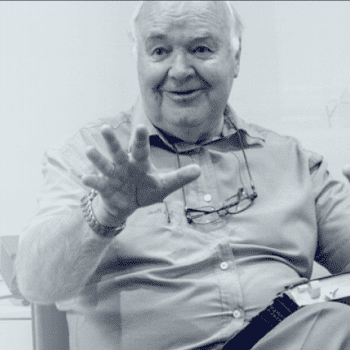This second installment of my interview with Wayne was quite far reaching. We spoke about the atonement and how he decides what kind of people to have fellowship with. He even had a comment on the recent controversy over Rick Warren and John Piper.
How important do you think some of the recent realignments over doctrinal matters we have seen recently in the Church are?
It’s why I am here. It was to affirm the need for drawing boundaries on doctrinal matters that I came here to this conference. In particular, the importance of affirming penal substitutionary atonement (i.e. that Jesus was punished for our sin). That is just central to the whole of the gospel. Once that is denied, other things start to unravel. It was with a desire to encourage the people who organize New Word Alive that I came here.
We must trust in Jesus as our Saviour. Sometimes the faith in peoples hearts is better than the doctrine in their minds. With the preaching of the full gospel, people ought to believe that Jesus is both God and man that he died to receive the full penalty for our sins, and that he rose from the dead and that we trust in him for salvation. Every doctrine is related to everything else. It therefore requires mature wisdom to decide whether to endorse someone who believes something you do. So for example, on the issue of baptism, Christians have agreed to disagree on the basis that it has limited effects on the rest of our understanding of the Bible.
How do you decide what kind of people to have fellowship with?
Well it depends on what purpose. I have next door neighbours who are Muslims and we are friends with them. It doesn’t mean that I endorse what they believe. I have worked on political and legal issues with Catholics as well as having a Roman Catholic woman as a participant in a neighbourhood Bible study. On the level of church membership, however, there has to be some willingness to submit to and support the doctrinal teachings and leadership of that church. Then at the level of teaching responsibility in the church, there are more requirements, and that the level of eldership there are even more. The higher one goes on the overall influence on the direction of the church, the more careful one must be to admit someone to that role.
















